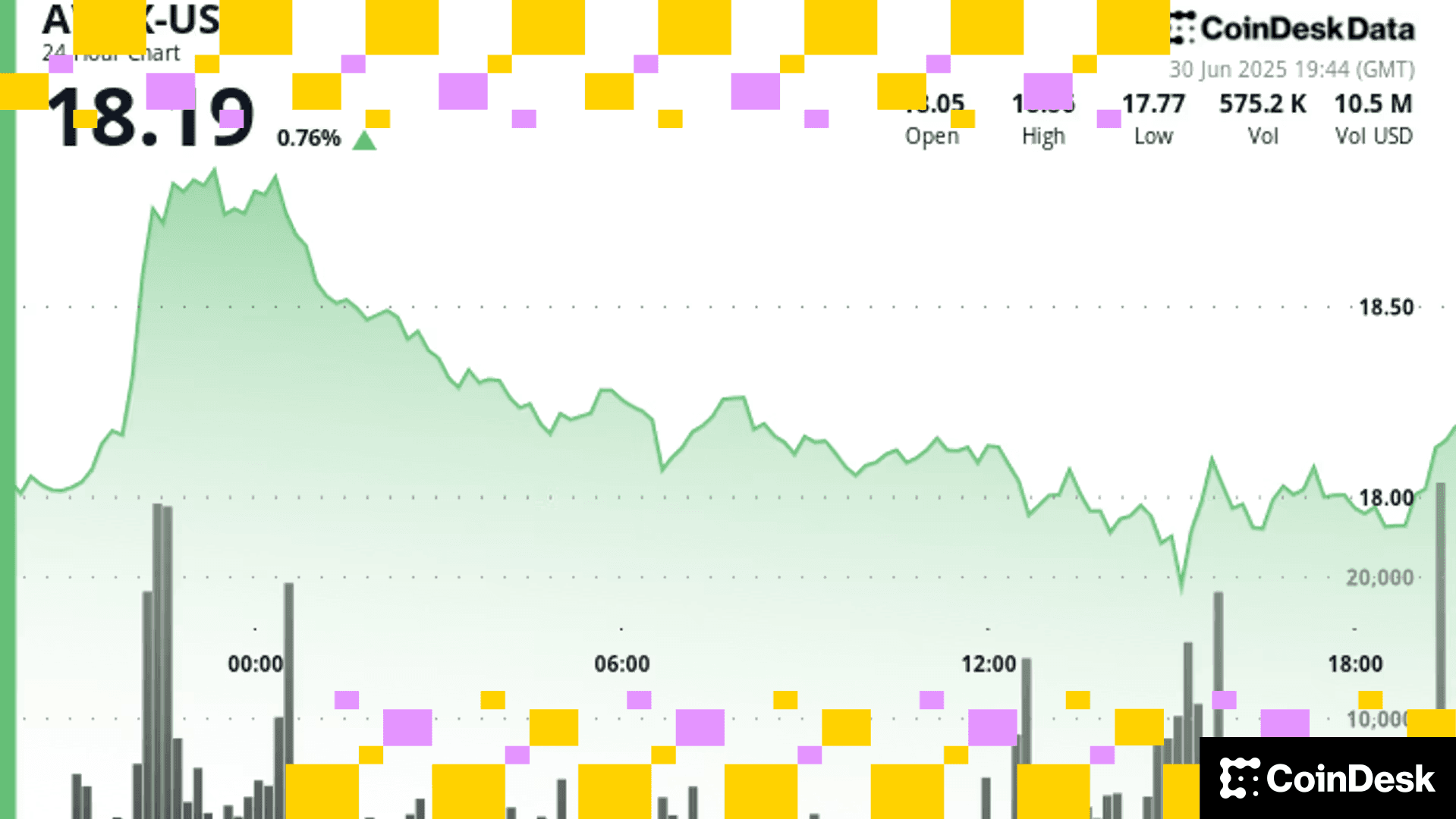Tinawag ng Gensler ng SEC ang Stablecoins na 'Poker Chips' sa Wild West Crypto Casino
Inihambing din ng SEC chair ang Crypto boom sa Wildcat banking era noong ika-19 na siglo, na nagsasabing "sinasabi sa atin ng kasaysayan na ang mga pribadong anyo ng pera ay T nagtatagal."

Dinoble ni US Securities and Exchange Commission (SEC) Chairman Gary Gensler ang kanyang posisyon na ang kanyang ahensya ay may "matatag" na awtoridad na i-regulate ang industriya ng Cryptocurrency , na nagsasabi sa isang pakikipag-usap sa Washington Post noong Martes na ang "karamihan" na mga cryptocurrencies ay may mga katangian ng mga seguridad.
Tinalakay din ng Gensler ang mga stablecoin, na naging isang lumalagong lugar ng pag-aalala sa mga pederal na regulator. Sinabi ni Gensler sa Washington Post na ang SEC ay kasalukuyang naglalagay ng isang ulat tungkol sa mga stablecoin sa ilalim ng gabay ng Treasury Secretary Janet Yellen. Sinabi rin niya na ang SEC ay nakikipagtulungan sa mga regulator ng pagbabangko upang makakuha ng pinalawak na awtoridad mula sa Kongreso upang ayusin ang mga stablecoin.
Nauna nang inihambing ng Gensler ang industriya ng Crypto sa Wild West, isang pagkakatulad na pinalawak niya sa panayam noong Martes. “Marami kaming casino dito sa Wild West,” sabi ni Gensler. "At ang poker chip ay ang mga stablecoin na ito."
Ang mga komento ni Gensler ay dumating isang linggo pagkatapos niya patotoo bago ang Senate Banking Committee, kung saan siya ay nagtalo na ang mga palitan ng Crypto tulad ng Coinbase ay dapat magparehistro sa SEC.
Sa kanyang pakikipag-usap sa Washington Post, pinalawak ni Gensler ang kanyang posisyon, na nagsasabi na ang Crypto trading at lending platform ay nag-aalok ng hanggang sa "libo-libo" ng mga token, at ito ay "malamang" na ang ilan sa mga token na ito ay umaangkop sa kahulugan ng isang seguridad.
"Dapat pumasok ang mga platform na iyon, at dapat nilang malaman kung paano magparehistro," sabi ni Gensler. "Hindi marami ang mayroon, at kaya talagang natatakot ako na KEEP nating dalhin ang mga kasong ito sa pagpapatupad ngunit magkakaroon ng problema ... at, sa totoo lang, kapag nangyari iyon, iniisip ko na maraming tao ang masasaktan."
Kinilala din ng Gensler ang pseudonymous na tagalikha ng bitcoin, si Satoshi Nakamoto - na tinukoy ni Gensler bilang "Nakamoto-san" - na nag-uudyok ng pagbabago at pagiging isang katalista para sa pagbabago sa kung paano pinangangasiwaan ng mga sentral na bangko at pribadong sektor ang mga sistema ng pagbabayad.
Sa kabila ng mga benepisyo sa pagbabago, gayunpaman, binigyang-diin ni Gensler ang kahalagahan ng proactive na regulasyon ng Crypto .
"Sa palagay ko ay T magandang ideya na maghintay hanggang sa may tumalsik sa ikatlo," biro ni Gensler. “Kung T tayong gagawin at walang tumalsik sa aisle three, maganda ... Sa tingin ko marami lang ang warning signs at kumikislap na ilaw na baka magkaroon tayo ng spill sa aisle three at mas gugustuhin ko pang mauna.”
Ilang beses ding sinabi ni Gensler sa panayam na T niya nakikitang mabubuhay ang mga pribadong anyo ng pera sa mahabang panahon, kung ihahambing ang Crypto sa Panahon ng wildcat banking noong ika-19 na siglo nang ang mga bangko sa malalayong lugar ng U.S. ay namahagi ng halos walang halagang papel na pera na sinusuportahan ng mga bono at iba pang mga securities.
"Sinasabi sa amin ng kasaysayan na ang mga pribadong anyo ng pera ay T nagtatagal," sinabi ni Gensler sa Washington Post. "Sa palagay ko ay walang pangmatagalang posibilidad para sa 5,000 o 6,000 pribadong anyo ng pera."
More For You
Exchange Review - March 2025

CoinDesk Data's monthly Exchange Review captures the key developments within the cryptocurrency exchange market. The report includes analyses that relate to exchange volumes, crypto derivatives trading, market segmentation by fees, fiat trading, and more.
What to know:
Trading activity softened in March as market uncertainty grew amid escalating tariff tensions between the U.S. and global trading partners. Centralized exchanges recorded their lowest combined trading volume since October, declining 6.24% to $6.79tn. This marked the third consecutive monthly decline across both market segments, with spot trading volume falling 14.1% to $1.98tn and derivatives trading slipping 2.56% to $4.81tn.
- Trading Volumes Decline for Third Consecutive Month: Combined spot and derivatives trading volume on centralized exchanges fell by 6.24% to $6.79tn in March 2025, reaching the lowest level since October. Both spot and derivatives markets recorded their third consecutive monthly decline, falling 14.1% and 2.56% to $1.98tn and $4.81tn respectively.
- Institutional Crypto Trading Volume on CME Falls 23.5%: In March, total derivatives trading volume on the CME exchange fell by 23.5% to $175bn, the lowest monthly volume since October 2024. CME's market share among derivatives exchanges dropped from 4.63% to 3.64%, suggesting declining institutional interest amid current macroeconomic conditions.
- Bybit Spot Market Share Slides in March: Spot trading volume on Bybit fell by 52.1% to $81.1bn in March, coinciding with decreased trading activity following the hack of the exchange's cold wallets in February. Bybit's spot market share dropped from 7.35% to 4.10%, its lowest since July 2023.
Більше для вас
Ang overlay ng larawan ay pagsubok na glitch dalawa

Dek: I-overlay ng larawan ang pagsubok na glitch dalawa











